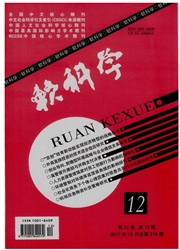

 中文摘要:
中文摘要:
在随机需求情形下,通过返回策略工具,运用Stackelberg非合作博弈理论,分别构建了多供应链竞争下,处于竞争劣势的分散式、集中式及收益共享情形下的供应链EOQ和供应链内部协调机制。供应链协调时,收益共享及集中式供应链EOQ、整体利润均大于分散式供应链的情形。相比分散式供应链情形,收益共享协调机制对供应链整体比较有利,对零售商最为有利。通过选择恰当共享系数,使返回策略与收益共享契约密切结合,可以有效降低产品的缺货、剩余及返回数量,进而提高零售商EOQ,较大幅度扩大市场销售份额,使供应链的整体收益大于集中式供应链的收益,并同时使供应链内部各成员的收益更加均衡,这为供应链的长期稳定发展奠定了坚实的基础。
 英文摘要:
英文摘要:
Under the stochastic demand situation, through the return policy tool, utilizing the Stackelberg non-cooperation gambling theory, this paper constructs EOQ and supply chain internal coordinated mechanisms of decentralized, centralized and revenue sharing supply chains which are at a disadvantage condition among supply chains competition. When supply chain is coordinated, EOQ and total profits of revenue sharing or centralized supply chain are bigger than those of decentral- ized supply chain. Compared the decentralized supply chain situation, the revenue sharing coordinated mechanism advanta- geous to total supply chain and most advantageous to the retailer. When choice appropriate sharing coefficient and closely u- nify the return policy and the revenue sharing contract, it may effectively reduce the product stock-out, surplus and return quantities. So it can enhance retailer EOQ, greatly expand the market sale share and make supply chain's totalrevenue be bigger than the central supply chain~ totalrevenue. Simultaneously,it can make supply chain interior members" totalrevenue more balance. This can lay a solid foundation to supply chain long-term stability development.
 同期刊论文项目
同期刊论文项目
 同项目期刊论文
同项目期刊论文
 期刊信息
期刊信息
